
Specification:
Ep-CAM (epithelial specific antigen) is an ~40 kDa transmembrane glycoprotein involved in several cellular processes including adhesion, proliferation, maintenance of stemness, migration and invasion (Spizzo, 2012, Denzel, 2012). Ep-CAM is expressed on most, but not all, normal epithelia and their corresponding malignancies. Although the role of Ep-CAM expression in tumorigenesis remains to be fully elucidated, Ep-CAM may downregulate immunity and help tumors actively escape from immune surveillance. Since the 1980s Ep-CAM has been recognized as a pan-carcinoma antigen marker because of its widespread expression on epithelium and their derived tumors (Litnov, 1994; Ruf, 2007). More recently, Ep-CAM has also been identified as a stem cell marker, and it is thought that Ep-CAM antibody positive tumor cells may have stem-like properties (Flatmark, 2011) Ep-CAM antibody is widely used to help distinguish epithelial from non-epithelial neoplasms. Ep-CAM antibody positive tumors are epithelium derived, whereas Ep-CAM antibody negative tumors can originate from either non-epithelial or epithelial tissues. Ep-CAM antibody has also been used for identifying circulating tumor cells (Saif, 2012, de Albuquerque, 2012). Ep-CAM antibody is often used as part of a panel with other tumor or tissue antibody markers when classifying tumors of known, suspected or elusive origin. Ep-CAM expression may be upregulated in tumors and overexpression can most pronounced on tumor initiating cells (Imrich, 2012). Overexpression may be an indication of early malignancy and correlate with a poor prognosis (Ruf, 2007). The VU1D9 Ep-CAM antibody clone has been widely cited in the literature, and researchers are encouraged to review the published literature for additional information.
Immunogen:
Small cell lung carcinoma cells
Presentation:
Ep-CAM antibody in PBS with 15 mM sodium azide

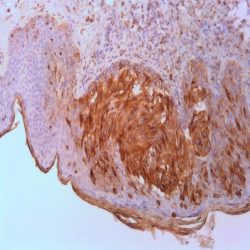
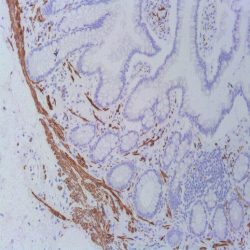
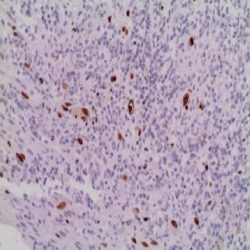
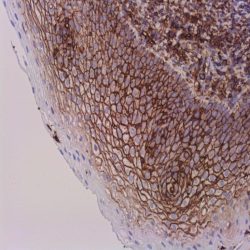
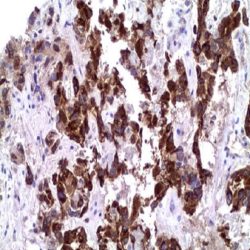
دیدگاهها
هیچ دیدگاهی برای این محصول نوشته نشده است.